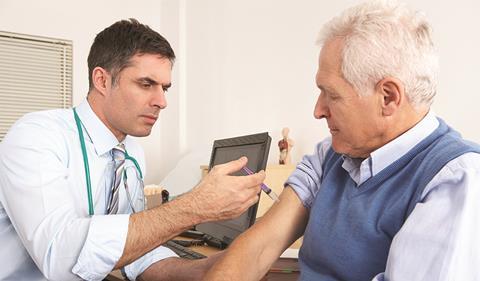Three quarters of all CCG GP leads are men. Julie Wood argues for better management of female talent to redress the balance

Nearly 75 per cent of CCG GP leads are male
When I first became a chief executive it was 18 years ago. At the time there was definitely a “glass ceiling” for women in the NHS.
I was determined not to let this get in the way of my desire to lead a primary care focused commissioning organisation but all the same at times it could still feel isolating being the only woman in boardrooms full of men.
While this has improved somewhat today, the statistics show that it has not changed nearly enough. There is certainly still a long way to go before reaching gender equality in NHS leadership.
Gender equality is crucial to improve performance
In clinical commissioning groups for example, while 70 per cent of the total workforce are women, 63 per cent of governing members are men. Even more strikingly 74 per cent of CCG GP leads – GPs who lead a particular work stream – are male, and in 29 CCGs there are no female GP leads at all.
Not only is achieving gender equality the right thing to do for the sake of fairness, it’s also one that is crucial to improve performance. Research has shown that organisations with women sitting on their boards – at least three to every 10 members – do better than those without in terms of both operational excellence and financial performance.
Women in leadership
Our recently published briefing, Women in clinical commissioning leadership: A case for change, looks at why there is a lack of gender diversity in health leadership, and what actions need to be taken to address this in the clinical commissioning arena.
One issue drawn out in the briefing that resonated with my own experience was around the support for potential female leaders. The briefing states that there is a failure to spot, nurture and manage female talent, as well as lack of peer support networks.
This is crucial because as a general rule women, more so than men, are likely to benefit from support to give them the self-belief that they are capable of carrying out leadership roles, within increasingly portfolio careers whilst balancing hugely busy home and family lives. For me this was certainly the case.
It is incumbent on all working in the health system to take action to address the gender imbalance
I was lucky, in that another female leader encouraged me and helped to give me the confidence to pursue a leadership role. I also had a supportive family and a whole raft of coping strategies that I’d needed to develop over time that enabled me to balance the many competing demands.
It is incumbent on all working in the health system to take action to address the gender imbalance in leadership, not just because it is “the right thing to do” but because of the benefits it gives to the services that the NHS commissions and delivers.
NHS Clinical Commissioners have pledged to contribute to this in this in a number of ways. This includes championing the cause of women in clinical leadership on a national platform as members of the HSJ Women Leaders Network.
We’re also working jointly with MSD to develop an offering to our membership to include mentorship and buddying for potential female leaders.
While our work to support CCGs around this will be ongoing, we also make specific recommendations for them in the briefing.
When it comes to gender equality in the NHS there is a long way to go, but it is encouraging to see that there is a lot of good work going on to change this. There is more to do, but I strongly believe if everyone takes action, the number of women in clinical commissioning leadership can be boosted – and the performance of the organisations that they are a part of along with it.
This has got to be a good result not only for women but for the populations CCGs serve who rely on them to commission the best possible healthcare.
Julie Wood is chief executive of NHS Clinical Commissioners


























No comments yet